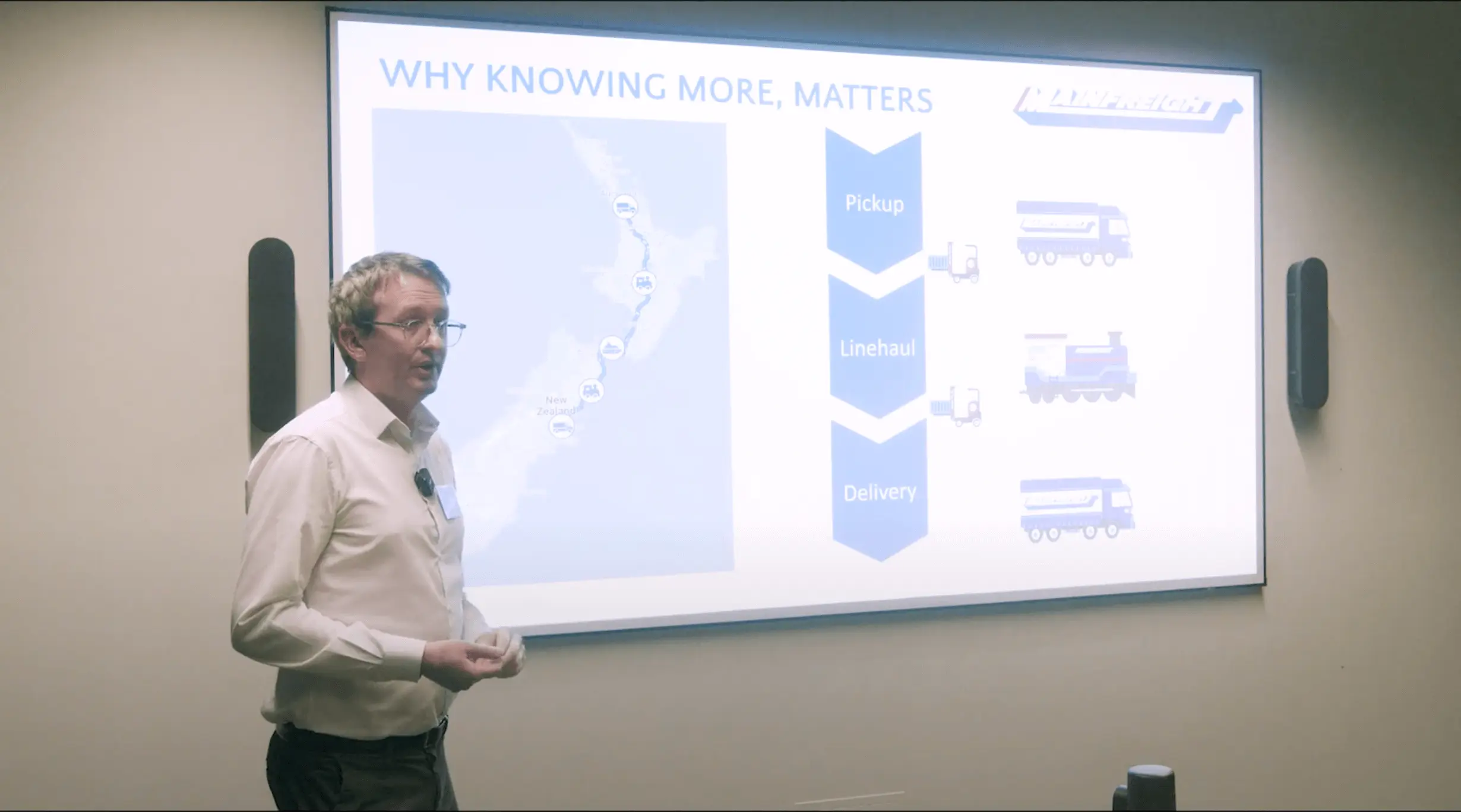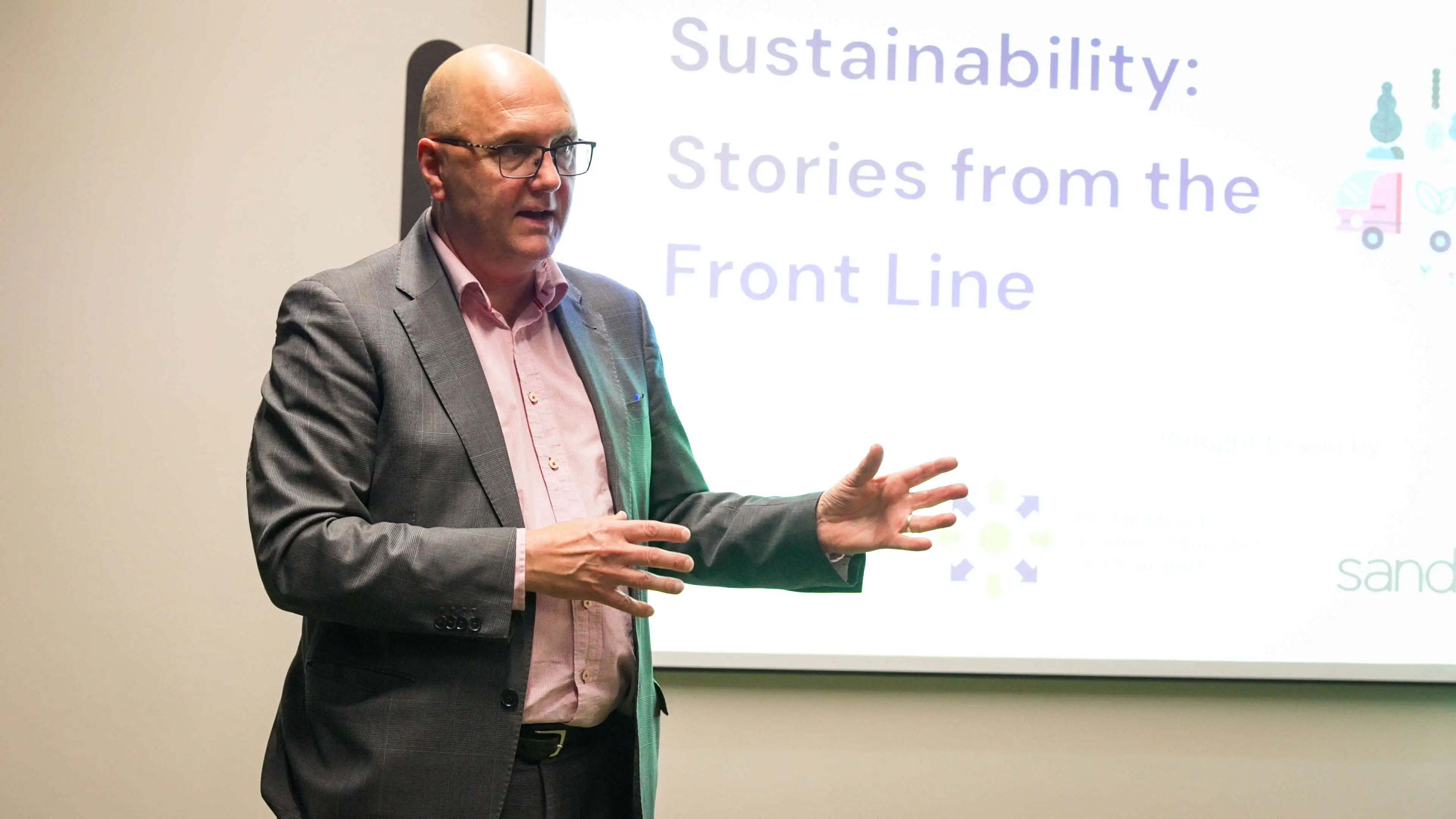Fast-paced. Demanding. High volume.
Mastering a supply chain is no small feat. From the 2021 Suez Canal Obstruction to the COVID-19 pandemic, the industry has faced challenge after challenge over recent years.
Amongst these disruptions, it may appear as if the priority list shifted. Whilst the industry was increasingly focussed on decarbonisation pre-2020, the focus in more recent years has been redirected to visibility and resilience.
There’s only one problem with that: decarbonisation can’t wait.
You only need to look to recent extreme weather events in Aotearoa New Zealand as one form of reminder that supply chain sustainability needs to top the priority list.
That’s why, in July 2023, Sandfield along with The Chartered Institute of Logistics and Transport (CILT) New Zealand hosted our first in-person event: Supply Chain Sustainability - Stories from the Front Line.
In it, we set out to lay bare the insights and experiences of major industry players, Mainfreight and KiwiRail.
Shaun Morrow, Programme Manager at Mainfreight
The evening kicked off with Shaun Morrow from Mainfreight who surveyed their decarbonisation efforts within New Zealand’s domestic transport scene, highlighting the initiatives most effective at shifting the dial.
Shaun emphasised that data visibility was the key unlocking Mainfreight’s understanding of both the forecasted and actual impact their decarbonisation initiatives were to have. The decision-making power that comes from this information, he said, was empowering customers with accurate carbon emissions data.
For example, a customer approached Mainfreight inquiring whether rerouting their London to Sydney shipment could see lower emissions if they skipped the Singapore stopover. With data on hand, they could see that although they shaved 1800km of distance from the tradeline, emissions increased by approximately 20%.
Why? The London to Singapore tradeline uses a larger ship, reducing total CO2e per kg.
Understanding this, Shaun shared, is unlocking more sustainable route planning across international shipments. By using their custom carbon calculator software by Sandfield, Mainfreight is able to conduct more accurate scenario planning and leverage these insights in their decision-making early.
It’s not just in planning where data is informing decarbonisation efforts. A key part of Mainfreight's sustainability strategy involves tracking, measuring and reporting carbon emissions.
Shaun showed how calculating these emissions using real data gives visibility of actual carbon emitted on each transport leg. No longer are they needing to rely on defaults and averages — factors which can result in the over-reporting of emissions by 400%. Not only does this improve reporting accuracy, but it also identifies opportunities for improvement, such as using rail for non-urgent deliveries.
Alan Piper, Group GM Sales & Commercial at KiwiRail
Our topic of Supply Chain Sustainability was then passed to Alan Piper from KiwiRail who detailed their investments aimed at strengthening supply chain resilience in the face of extreme weather events and long-term sustainability objectives.
With Rail producing significantly less GHG emissions than other modes of transport, such as Air or Road, it's a clear choice when looking to reduce carbon emissions. Alan’s presentation looked at the increased investment in Rail and Ferry infrastructure across the country as well as how utilising key distribution hubs ensures these modes are more accessible to our transport and logistics providers, and, ultimately, the end consumer.
The subsequent Q&A session saw active discussions on topics spanning rail infrastructure, decarbonisation, and supply chain visibility. It was an enriching event, underscoring a collective commitment to improving and innovating within our industry.
The industry has navigated some rough waters recently but it's clear that we're all in the same waka, paddling towards a more resilient, transparent and sustainable future for New Zealand's supply chain.
As we reflect on the valuable insights gained, we're excited about the strides being made. From advancing decarbonisation initiatives to improving supply chain resilience, we're moving forward, together. That's our kind of progress!













